Trump budget bill hits the rocks with GOP rebels, tax hawks ahead of key vote
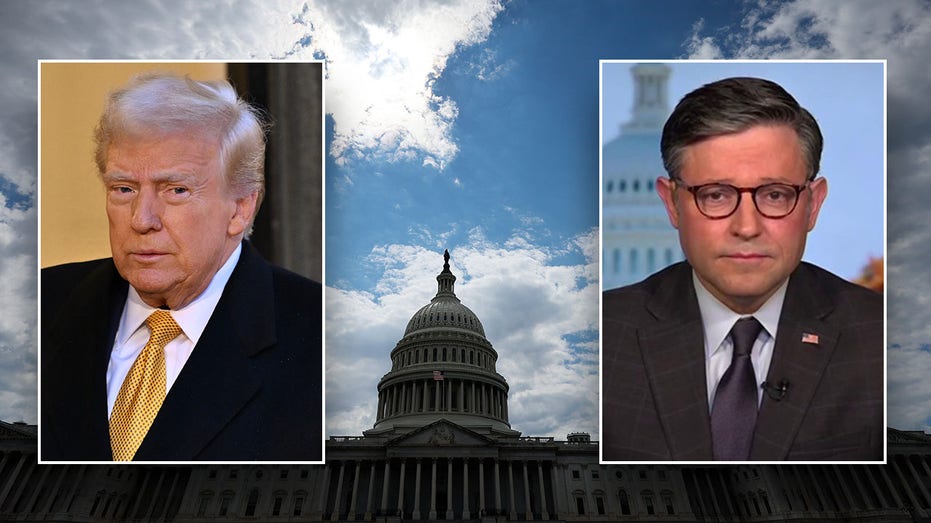
The House GOP’s proposal for a massive conservative policy overhaul has already gotten a rocky reception from Republican lawmakers, and with their current majority, Republicans will need to vote in near lock-step to pass anything without Democratic support. “I think it’s probably going to have to be modified in some way before it comes to the floor,” House Freedom Caucus Chairman Andy Harris, R-Md., told Fox News Digital. Other members of the GOP hardliner group also balked at the bill. Rep. Eric Burlison, R-Mo., called it a “pathetic” attempt at cutting spending. “We’ll still be accelerating towards a debt spiral,” Burlison said. SCOOP: KEY CONSERVATIVE CAUCUS DRAWS RED LINE ON HOUSE BUDGET PLAN House and Senate Republicans are working to use their majorities to advance President Donald Trump’s agenda via the budget reconciliation process. By reducing the threshold for passage in the Senate from two-thirds to a simple majority, which the House is already at, it allows the party in power to pass budgetary and fiscal legislation without help from the opposition. The first step in the process is to advance a framework through the House and Senate budget committees, which then gives directions to other committees on how much funding they get to implement their relevant policy agendas. The Senate Budget Committee approved its own plan on Wednesday night, while the House counterpart is poised to meet on their proposal Thursday morning. It’s not immediately clear if that bill will pass, however. Four conservatives on the House Budget Committee – Reps. Chip Roy, R-Texas, Ralph Norman, R-S.C., Andrew Clyde, R-Ga., and Josh Brecheen – did not commit to voting for the 45-page proposal backed by GOP leaders that was released on Wednesday morning. Roy said he was “not sure” if the legislation could advance on Thursday morning when asked by Fox News Digital. “We’ll see,” Norman said when asked if the bill would pass out of committee. Clyde and Brecheen similarly would not say how they felt about the proposal when leaving the speaker’s office on Wednesday afternoon. If all four voted against the legislation, it would be enough to block the resolution from advancing to the House floor. Other conservatives also expressed reservations. Rep. Eli Crane, R-Ariz., told Fox News Digital, “I’m not super happy with it.” “It just doesn’t do enough to address fiscal cuts,” Crane said. The House’s 45-page bill would mandate at least a $1.5 trillion reduction in federal spending over the next 10 years, coupled with $300 billion in new spending for border security and national defense over the same period. It would also raise the debt ceiling by $4 trillion – something Trump had demanded Republicans deal with before the U.S. runs out of cash to pay its debts, projected to happen by the spring if Congress does not act. BLACK CAUCUS CHAIR ACCUSES TRUMP OF ‘PURGE’ OF ‘MINORITY’ FEDERAL WORKERS And while hardline conservatives wanted deeper spending cuts written into the bill, Republicans on the House Ways & Means Committee are uneasy about the $4.5 trillion allocated toward extending Trump’s Tax Cuts and Jobs Act (TCJA) of 2017 – which expires at the end of 2025. “Let me just say that a 10-year extension of President Trump’s expiring provisions is over $4.7 trillion according to CBO. Anything less would be saying that President Trump is wrong on tax policy,” Ways & Means Chairman Jason Smith, R-Mo., told The Hill earlier this week. A member of the committee, Rep. Nicole Malliotakis, R-N.Y., told Fox News Digital, “I have some concerns regarding Ways & Means not being provided with the largest amount to cover President Trump’s tax cuts — especially [State and Local Tax deduction (SALT)] relief and a tax reduction for senior citizens, which are both also priorities of mine.” Rep. Max Miller, R-Ohio, said he had not read the legislative text but that Smith believed the $4.5 trillion figure was “about a trillion off from where we need to be in order to make it work.” The resolution’s first big test comes at 10 a.m. ET on Thursday. Republicans are aiming to use reconciliation to pass a broad swath of Trump’s priorities, from more funding for law enforcement and detention beds at the U.S.-Mexico border to eliminating taxes on tipped and overtime wages. The Senate’s plan would advance border, energy, and defense priorities first while leaving taxes for a second bill. Speaker Mike Johnson, R-La., called that plan a “nonstarter” this week, however. House leaders are concerned that leaving tax cut extensions for a second bill could allow those measures to expire before lawmakers reach an agreement.
‘No betrayal’ in Trump move toward Ukraine war negotiations, Hegseth says
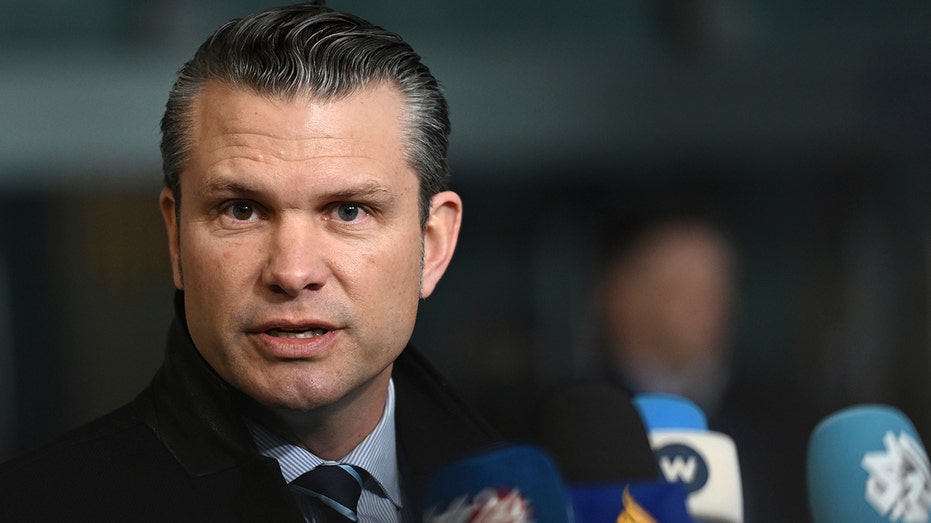
Secretary of Defense Pete Hegseth said President Donald Trump’s move toward negotiations with Russia to end the war with Ukraine was “no betrayal” during a visit to NATO headquarters in Belgium on Thursday. Hegseth replied to a reporter’s question about the U.S. potentially betraying Ukraine after Trump had a phone call with Russian President Vladimir Putin about beginning to negotiate peace without Kyiv’s full involvement. “There is no betrayal there,” Hegseth told reporters. “There is a recognition that the whole world and the United States is invested and interested in peace, a negotiated peace.” Russia and Ukraine have been at war since February 2022, when Russia first invaded its neighboring nation. Trump had repeatedly said while on the campaign trail that if he was president in 2022 the war would not have broken out — vowing to end it if re-elected. PUTIN VIEWED AS ‘GREAT COMPETITOR’ BUT STILL A US ‘ADVERSARY’ AS UKRAINE NEGOTIATIONS LOOM, LEAVITT SAYS On Wednesday, Trump said he had a “lengthy” call with Putin, which included the Russian leader agreeing to “immediately” begin negotiations over the war in Ukraine. Trump also spoke with Zelenskyy separately. After talks with both leaders, Trump said he would “probably” meet in person with the Russian leader in the near term, possibly in Saudi Arabia. Responding to a separate question, Hegseth referred to the phone calls and pointed to Trump’s ability as a negotiator. “I think you saw from President Trump yesterday, who himself is the best negotiator on the planet, bringing two sides together to find a negotiated peace, which is ultimately what everyone wants,” he said. “So I look forward to the ministerial today with our NATO allies to have honest conversations about where we are.” ‘LET’S DO A DEAL’: ZELENSKYY CALLS TRUMP’S TERMS ACCEPTABLE FOR SECURITY PARTNERSHIP Hegseth also said he believes Trump is the “one man in the world capable of convening the parties together to bring peace.” During his visit to NATO headquarters on Wednesday, Hegseth told allies that “returning to Ukraine’s pre-2014 borders is an unrealistic objective,” as Trump works to bring an end to the war. “He intends to end this war by diplomacy and bringing both Russia and Ukraine to the table. And the U.S. Department of Defense will help achieve this goal,” Hegseth said. “We want a sovereign and prosperous Ukraine. But we must start by recognizing that returning to Ukraine’s pre-2014 borders is an unrealistic objective. Chasing this illusionary goal will only prolong the war and cause more suffering.” Fox News Digital’s Emma Colton and Greg Norman, along with The Associated Press, contributed to this report.
Meet IAS officer, promoted to super time scale Secretary grade in Uttarakhand, once represented India at…, he is…

In a remarkable milestone, Senior Indian Administrative Service (IAS) officer, Raghav Langer, has been promoted to super time scale (Secretary grade) in Uttarakhand.
FASTag New rule: All you need to know to avoid extra charges from February 17

Understanding these changes is crucial to avoid penalties and ensuring smooth passage through tolls.
Man who saved Rishabh Pant’s life in 2022 car accident, attempts suicide with girlfriend, she dies

Rajat Kumar, 25, and his 21-year-old girlfriend, Manu Kashyap, allegedly consumed poison after their families opposed their relationship.
Top Government Schemes for Farmers, Artisans, and Students You Should Not Miss!

Government schemes are making a real difference. PM Vishwakarma Yojana supports 30 lakh artisans, the Farmer Registry connects 12 crore farmers, and Subhadra Yojana uplifts 1 crore women.
DOGE subcommittee holds first hearing slamming $36T national debt, as House Republicans declare ‘war on waste’
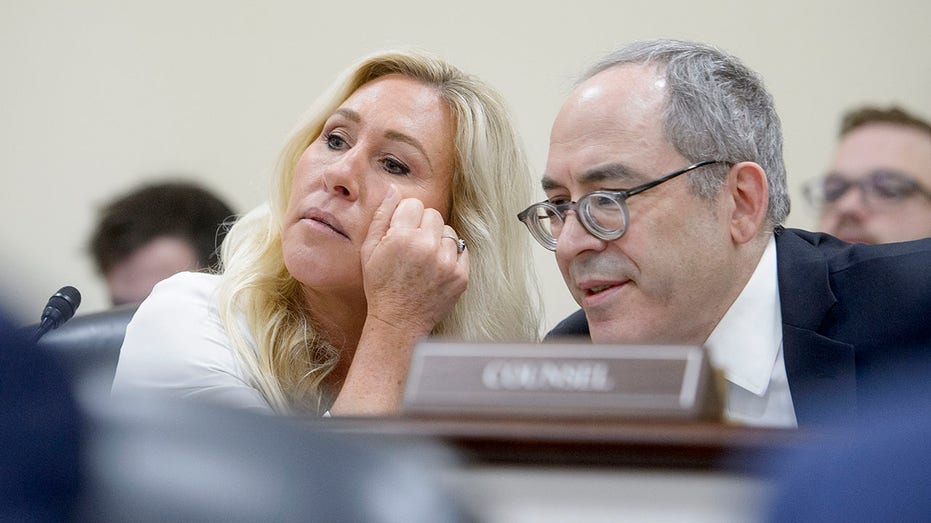
The House Subcommittee on Delivering on Government Efficiency held its first ever hearing Wednesday, as Republicans criticized the soaring $36 trillion national debt, as well as Democrats’ condemnation of Elon Musk’s effort to slash waste. In her opening statement, Chairwoman Rep. Marjorie Taylor Greene, R-S.C., said the committee must be “brutally honest about how this massive debt came to be in the first place – it came from Congress and from elected presidential administrations.” “We as Republicans and Democrats can still hold tightly to our beliefs, but we are going to have to let go of funding them in order to save our sinking ship,” Greene said. “This is not a time for political theater and partisan attacks. The American people are watching. The legislative branch can’t sit on the sidelines. In this subcommittee, we will fight the war on waste shoulder to shoulder with President Trump, Elon Musk and the DOGE team.” Greene said, “enslaving our nation in debt” is one of the “biggest betrayals against the American people’s own elected government” and vowed that her subcommittee, operating under the House Oversight Committee, would work with President Donald Trump’s newly created Department of Government Efficiency (DOGE), which is spearheaded by Musk as part of the executive branch. DOGE SLASHES OVER $100M IN DEI FUNDING AT EDUCATION DEPARTMENT: ‘WIN FOR EVERY STUDENT’ “The federal government, government employees, and unelected bureaucrats do not live by the same rules as the great American people and private businesses,” Greene said. “The federal government’s income is the American people’s hard-earned tax dollars. Their literal blood, sweat and tears and taxes are collected by law at gunpoint. Don’t pay your taxes and you go to jail. The federal government does not have to provide excellent customer service to earn its income. It takes your money whether you like it or not. And federal employees receive their paycheck no matter what.” The subcommittee’s highest ranking Democrat, Rep. Melanie Stanbury of New Mexico, used her opening statement to slam Trump and Musk’s efforts, despite agreeing to a bipartisan approach to “digging into the more than $236 billion in improper payments that we see going out the door every single year,” as well as “putting into place rigorous oversight and controls to prevent fraud and abuse, and, of course, to go after bad actors.” “We can’t just sit here today and pretend like everything is normal and that this is just another hearing on government efficiency,” Stanbury said. “Because while we’re sitting here, Donald Trump and Elon Musk are recklessly and illegally dismantling the federal government, shuttering federal agencies, firing federal workers, withholding funds vital to the safety and well-being of our communities, and hacking our sensitive data systems.” One of the witnesses, Stephen Whitson of the Foundation for Government Accountability, testified that DOGE’s efforts have exposed $59 million paid to luxury hotels in New York City to house illegal immigrants, $1.5 million to advance diversity, equity and inclusion in Serbia’s workplaces, $32,000 for a transgender comic book in Peru, $10 million worth of food assistance funneled to al Qaeda and “the list goes on.” “But rather than applauding the work of DOGE, the left has launched a coordinated campaign to try to demonize Mr. Musk with the hope of shifting focus away from the disastrous waste, fraud and abuse that occurred on Biden’s watch. But guess what? It’s not working,” Whitson said. He shifted to the focus of Wednesday’s subcommittee hearing, Medicaid waste and fraud, testifying that more than 80% of improper Medicaid payments are due to eligibility errors, which Congress must address. Whitson testified that one in five dollars spent on Medicaid is improper, and Medicaid fraud and mismanagement is on track to cost U.S. taxpayers $1 trillion in the next 10 years. ‘OBAMA BROS’ ON DOGE: ‘SOME OF THE STUFF WE SHOULD’VE DONE’ Whitson also offered Congress three ways to support Trump’s DOGE effort. The first is for Congress to strengthen the Medicaid program through legislative action. He testified that both the Biden and Obama administrations issued rules and guidance that made it harder for states to verify eligibility for Medicaid. He said repealing Biden’s Medicaid streamlining rule, which restricts eligibility verification that states can perform, would save $164 billion over 10 years. In a later exchange, Whitson said the Biden-era rule prohibits states from verifying eligibility more than once a year and prohibits in-person or phone call interviews to verify the recipient’s identity. It also opens “lengthy reconsideration periods,” opening the door for illegal immigrants to receive benefits. “A state has to wait at least 90 days” before verifying whether a recipient is an illegal immigrant, Whitson said. “And actually what we’re seeing is it’s let some states to wait as long as 13 years.” Secondly, Whitson said Congress could help DOGE by “ensuring that entrenched partisan bureaucrats don’t stand in the way of reform.” To do that, Congress must codify the president’s authority “to fire unproductive or insubordinate agency employees as needed,” as well as grant the president authority to permanently eliminate vacant positions and consolidate nonessential positions across agencies and departments to help promote efficiency, Whitson said. “Personnel is policy, and without competent staff to faithfully execute the president’s agenda, the DOGE project will fail,” he said. Thirdly, Whitson called on Congress to pass the REINS Act to “make President Trump’s DOGE cost-cutting and de-regulatory reforms permanent.” “There’s only one big problem with the DOGE effort. Most of its work can be undone by a future president with the stroke of a pen,” he said, adding that the REINS Act would “return Article One budgetary power of the purse to Congress while promoting deregulation. It would also help lock in the DOGE reforms and cement President Trump’s legacy as the most consequential de-regulatory and cost-cutting president in U.S. history.” At another point in the hearing, Rep. Eric Burlison, R-Mo., played out archived video of former President Bill Clinton in 1997 and former President Barack Obama in 2011 pledging to reduce the
Ukraine presses on in Kursk; Denmark warns Russia could wage war in Europe

Ukraine has advanced 5km (3 miles) deeper into Russian territory during the past week, as Russia again reportedly deployed North Korean forces against it. But as Kyiv’s forces inched ahead, United States Defense Secretary Pete Hegseth told a NATO meeting on Wednesday that it was “unrealistic” to expect a return to Ukraine’s pre-2014 borders and ruled out NATO membership for the war-torn nation – a major blow to Ukraine’s post-war ambitions. Amid tensions between NATO allies, with several European members at odds with Washington’s perspective, the Danish Defence Intelligence Service (DDIS) released a report on Tuesday warning that Russia could launch a war with “one or more European NATO countries if it perceives NATO as militarily weakened or politically divided”. “Since 2022, Russia has been undertaking a major reconstruction and reform of its military forces in parallel with its war effort in Ukraine,” the report said. “During 2024, this effort has changed its nature from a reconstruction to an intensified military buildup with the goal of being able to wage an equal fight against NATO forces. Advertisement “The economic and material support from China and the support from North Korea and Iran with troops and weapons systems, respectively, are increasingly contributing to freeing up resources for Russia’s rearmament against NATO.” Ukraine’s intensified push On February 6, Ukrainian forces launched a new offensive with two mechanised battalions from the town of Makhnovka, which they control. Geolocated footage showed they had moved along the 38K-028 highway to form a salient towards the southeast, capturing the settlements of Kolmakov and Fanaseyevka. Ukrainian forces advanced somewhat further along that highway on Friday, holding positions close to Cherkasskaya Konopelka, said Russian reporters. They said a second Ukrainian offensive launched from Dimitriukov was successfully checked. Ukraine had launched another surprise offensive in Kursk on January 5. Two surprise offensives in as many months suggest the importance Ukraine places on the Kursk operation, as well as Russia’s inability to anticipate Ukrainian actions, according to observers. (Al Jazeera) Moscow’s forces have been unable to dislodge Ukraine from Russian territory since August 6 last year, when Ukraine counter-invaded in a surprise move not even its allies knew about, as an active defence against Russia’s full-scale invasion of Ukraine in February 2022. On the six-month anniversary of the operation, Ukraine’s Special Operations Forces (SSO) revealed that preparations had begun two months before the counter-invasion. Advertisement “When Russia in June 2024 continued to carry out loud air strikes on the Sumy region, small special forces groups entered the enemy rear in the Kursk region,” the SSO posted on its Telegram channel. “The destruction of Russian air defence systems and ammunition depots did not leave the enemy the opportunity to react quickly. Point strikes on strategic objects and enemy logistics made it impossible to quickly transfer reinforcements,” it said. The SSO also said its special operations forces liaised with local resistance fighters opposed to Russian President Vladimir Putin, to set up ambushes and carry out sabotage. Ukrainian President Volodymyr Zelenskyy has said Ukraine’s push into Kursk has diverted 60,000 of Russia’s most capable personnel from the Ukrainian front to defend Russian turf. Manpower shortages Last December, Russia deployed North Korean soldiers to help secure its territory, but those forces were said to have disappeared from the battlefield in mid-January after losing as much as a third of their number in dead and wounded, according to estimates. Zelenskyy said on Friday that they were returning after recuperation, and a Ukrainian unit published video purporting to show them in active combat on Saturday. (Al Jazeera) Both sides have faced manpower shortages. Last May, Ukraine passed a conscription law obliging Ukrainian men aged 25-27 to enlist. The move was thought enough to raise a quarter of a million new soldiers, but Kyiv has struggled as some avoid the draft. Ukraine has had to spend 50,000 of those new recruits bringing existing brigades back up to strength rather than building a dozen new brigades as planned. Zelenskyy said he would now offer inducements for 18-24 year-olds to sign up to fight as well. Advertisement Russia’s situation is also difficult. Unlike Zelenskyy, Putin has not enlisted through general mobilisation, possibly fearing the political consequences. Zelenskyy said on February 4 that Russia has lost 300,000 to 350,000 soldiers since the full-scale invasion, with another 600,000 to 700,000 wounded. The figures are the highest yet given by Ukraine, whose Ministry of Defence estimates more than 850,000 Russian dead and wounded. Oleksandr Syrskii, Ukrainian commander-in-chief, said last month that 434,000 of those casualties were incurred in 2024 alone, suggesting that the war is becoming deadlier and less sustainable for Russia. (Al Jazeera) Russian-North Korean military cooperation deepens North Korea has apparently been helping Russia with migrant labour as well as soldiery. South Korea’s National Intelligence Service (NIS) revealed on Sunday that 13,221 North Koreans entered the Russian Federation last year, 12 times the number that emigrated in 2023. Those workers were separate from the 11,000 troops North Korea reportedly dispatched to Russia beginning in August. About half of the workers entered on student visas, the NIS said. The Institute for the Study of War, a Washington-based think tank, suggested this was a way of bypassing a UN Security Council Resolution barring any country from receiving North Korean labourers. North Korea is sanctioned for its nuclear weapons programme, and the UN is concerned that a diaspora could reinforce the economy with remittances. Putin has reportedly grown increasingly reliant on his North Korean ally for ammunition as well. Advertisement Andriy Kovalenko, the head of the Ukraine Center for Countering Disinformation, said last December that 60 percent of the artillery ordnance used by Russia now comes from North Korean factories. (Al Jazeera) Japanese news network NHK quoted unnamed sources on Saturday saying Russia would co-develop drones with North Korea in order to increase the size of its arsenal. “The sources say the accord on drone development is in return for North Korea’s deployment of soldiers,” said NHK. Russia may also be assisting
Australia, China trade barbs over midair encounter above South China Sea
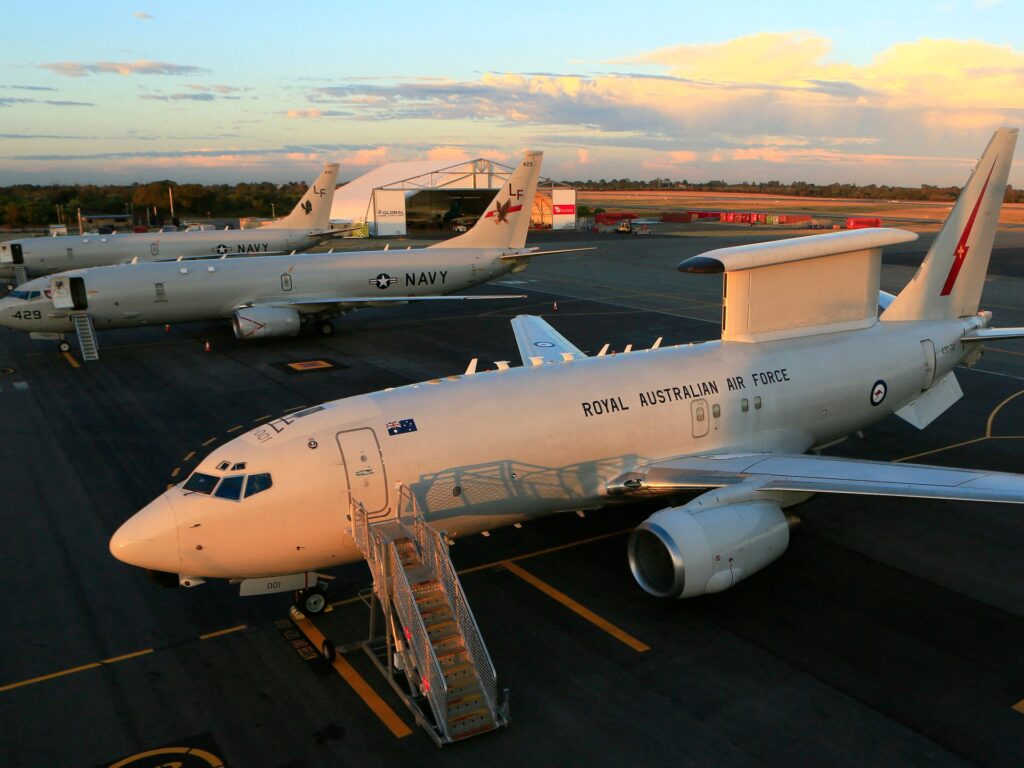
Canberra says Chinese jet dropped flares nears its air force plane as China accuses Australia of airspace intrusion. Australia has accused China of “unsafe” military manoeuvre after a Chinese fighter jet dropped flares near an Australian air force plane patrolling the South China Sea, drawing a quick pushback from Beijing. The Australian Defence Force said on Thursday that its plane was flying a “routine” surveillance patrol over the contested waters on February 11 when the Chinese aircraft Shenyang J-16 approached. It added that the jet “released flares in close proximity” to the Australian Poseidon surveillance plane, describing the incident as “an unsafe and unprofessional manoeuvre that posed a risk to the aircraft and personnel”. Australian Defence Minister Richard Marles said the flares passed within 30 metres (100 feet) of the aircraft, which typically carried about nine people. No one was injured but Marles said the move posed the “potential for significant damage”. He told Sky News that officials had voiced their displeasure with their Chinese counterparts in Canberra and Beijing. The Australian government “expressed its concerns” to China over the incident. Advertisement ‘Violation of Chinese sovereignty’ Beijing swiftly hit back, accusing the Australian plane of “violating Chinese sovereignty and endangering Chinese national security”. Chinese Foreign Ministry spokesman Guo Jiakun said that “without Chinese permission, the Australian military aircraft deliberately intruded into the airspace around China’s Xisha Islands,” Beijing’s name for the Paracel Islands. The Paracel group of islands is also claimed by Vietnam and Taiwan. “China’s measures to expel the aircraft were legitimate, legal, professional and restrained,” Guo said. He added that Beijing had “lodged solemn representations” with Canberra to demand an end to “infringements and provocations”. China claims almost all of the South China Sea, despite an international ruling in 2016 concluding this has no legal basis. The midair incident is the latest in a string of episodes between China and Australia in the increasingly contested airspace and shipping lanes of Asia. It also coincided with the arrival of three Chinese navy vessels in waters northeast of Australia’s mainland. Australia’s Defence Department officials said a Chinese frigate and a cruiser had been spotted near Australia’s “maritime approaches” with a supply tanker in tow. Marles said it appeared to be unrelated to the aircraft incident but the Australian navy had sent its own frigate to shadow their voyage. “Australia respects the rights of all states to exercise freedom of navigation and overflight in accordance with international law, just as we expect others to respect Australia’s right to do the same,” the Department of Defence said. Advertisement Adblock test (Why?)
Several injured after car drives into crowd in Germany’s Munich
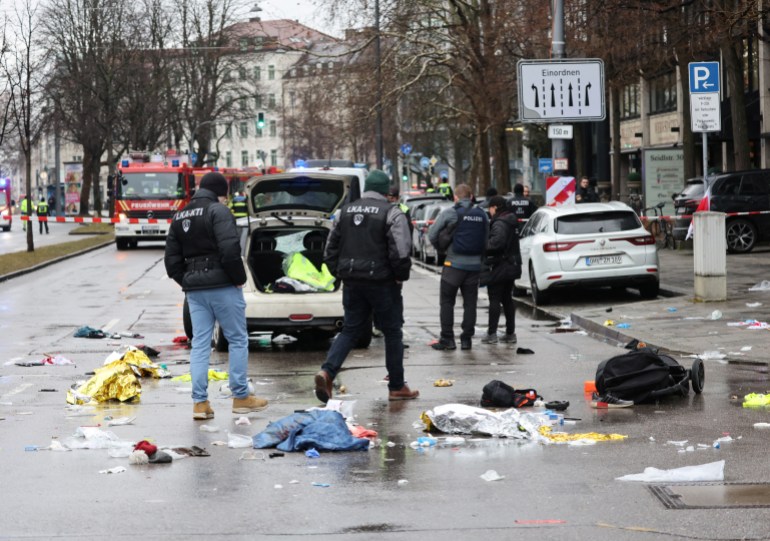
At least 20 injured, some of them seriously, after a car drove into a group of people in Munich, authorities said. At least 20 people have been injured, some of them seriously, after a car drove into a group of people in the German city of Munich, authorities said. Authorities didn’t provide details about the incident near downtown Munich which took place around 10:30am on Thursday, including whether the people were hit deliberately. Police said on social platform X that the driver was “secured” at the scene and no longer poses any danger. A damaged Mini Cooper could be seen at the scene. The fire service said at least 20 people were injured, some of them seriously, German news agency DPA reported. Mayor Dieter Reiter said he was “deeply shocked” by the incident. He said that children were among those injured. A demonstration by the service workers’ union ver.di was taking place at the time of the incident. It was not immediately clear whether demonstrators were among the injured. The incident comes a day before the three-day Munich Security Conference, an annual gathering of international foreign and security policy officials, opens on Friday. Police personnel walk past a car which drove into a crowd in Munich [Wolfgang Rattay/Reuters] Adblock test (Why?)
